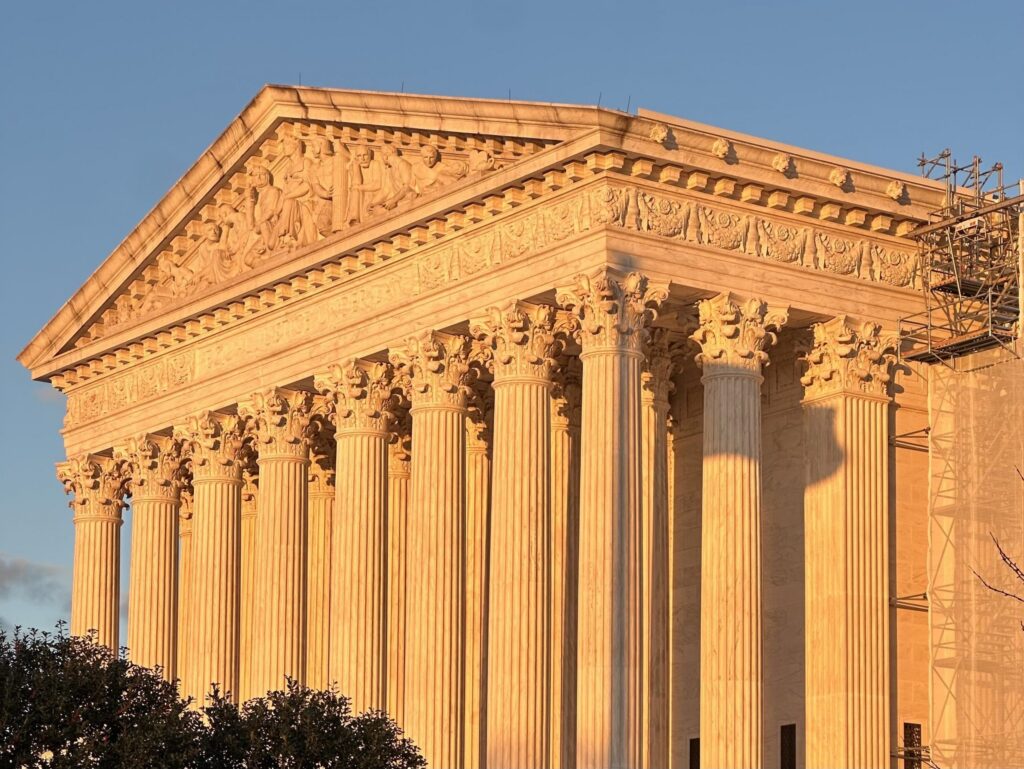
[ad_1]
ARGUMENT ANALYSIS
on Apr 23, 2024
at 5:46 pm
Monday’s argument in Smith v. Spizziri was this month’s case under the Federal Arbitration Act. This one explores what a trial court can do when it refers a pending suit to arbitration. Section 3 of the FAA says that if the court refers the case to arbitration, it “shall on application of one of the parties stay the trial of the action until such arbitration has been had.” The question is whether the trial court, instead of staying the action, can go ahead and dismiss it entirely.
The argument included a fair amount of questioning about the text. For example, early in Daniel Geyser’s argument (arguing for a stay rather than dismissal), Justice Ketanji Brown Jackson pointed out that the statute says “stay the ‘trial,’” and commented that “you would have an easier case if it said stay the ‘proceeding’ or stay the ‘action.’ … You want us to interpret it to be ‘proceeding’ or ‘action,’ but that’s not exactly what it says.”
On the other hand, Justice Sonia Sotomayor pressed Joshua Rosenkranz (arguing for dismissal as an alternative to a stay) forcefully on her reading of the text.
Sotomayor told Rosenkranz that she couldn’t “put aside the language, which says ‘stay until such arbitration has been had in accordance with the terms of the agreement,’ so it’s putting a limit,” she noted. “And it also says ‘providing that the applicant for the stay is not in default in proceeding’ … When the application is made the district court can’t tell how long it’s going to be.”
Sotomayor was emphatic: “I can’t read dismissal into those two conditions. If they were going to permit dismissal, they would have put ‘stay the action,’ period.”
The other justices were listening. Late in the argument, Jackson brought Rosenkranz back to the same point, asking how Rosenkranz’s argument was “consistent with the language that Justice Sotomayor put forward. I mean, … the statute says ‘stay until,’ so at least Congress thought that it could come back …?” Justice Brett Kavanaugh followed up on the same point, suggesting that the three of them all see a strong textual argument against dismissal.
A much greater share of the argument, though, was devoted to discussing the practical consequences of dismissal as compared to a stay. On that point, the justices who addressed the point seemed united in the view that it is strange to force a plaintiff to pay two filing fees for one dispute. Chief Justice John Roberts, for example, noted to Rosenkranz that “it’s a much greater burden if the case isn’t there and something arises where you need to go to court. You’re going to have to start all over.”
Along similar lines, Jackson said, “The plaintiff says ‘I paid on day one because I brought this in court and it was whatever the filing fee is. My case got shunted to arbitration. I win. And now you’re saying I have to pay another $500?’”
And Justice Elena Kagan noted that, on the other hand, the burden of leaving a case on the docket is trivial: “But, presumably … a district court will just keep a list of cases now in arbitration, and that list will exist in some file someplace, and nobody will do anything with it, except if there’s a problem.”
As the argument closed, sentiment seemed to coalesce on the relative balance of burdens from leaving the case on the docket or refiling. Jackson summarized her sense: “[I]f the case is dismissed, they would have to actually file a new action with the fee and everything else to open up that case … Why isn’t that more burdensome for the overall system than to just allow the district court to put this on a list somewhere?”
In the same vein, Roberts opined, “You’re saying that it’s more trouble to let the thing sit there than to file a new action, right? … It seems to me that the alternative would be a lot more burdensome than just sitting there.”
If you’re an arbitration proponent and you don’t have the chief justice solidly in your camp, it is hard to expect to find five justices to support you. In the same vein, there are not a lot of cases where he agrees with Jackson and that is not the winning side of the case.
[ad_2]
Source link


